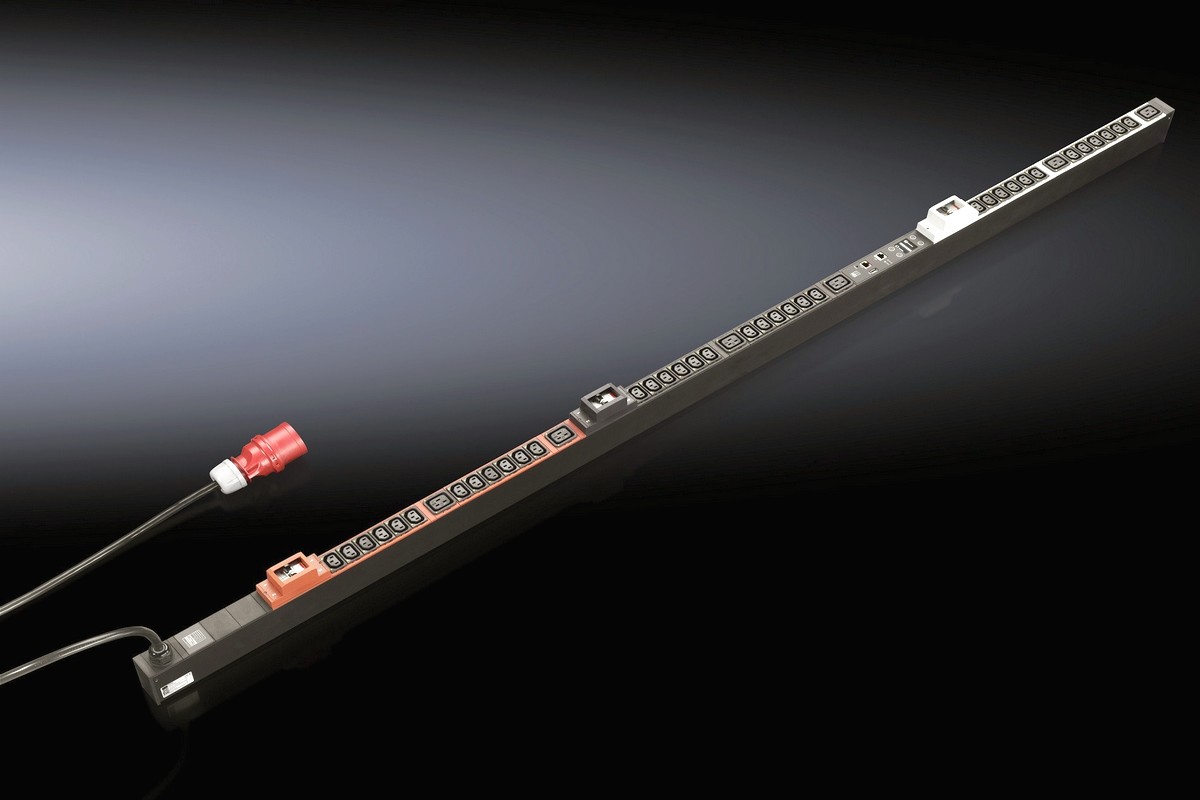Four compact power distribution units (PDU) for professional power distribution in IT racks will halve assembly time, compared to screw-in PDUs, according to Rittal which developed the product.
The systems employ snap-in technology so not only is it very quick and easy to assemble, there is also no need for tools. Up to four PDUs can be mounted in the zero-U-space so no height units for servers are wasted.
There are four variants of the PDU: the PDU basic provides a robust and compact basis power distribution for the IT environment. The insert strip is easily connected and is immediately functional.
The PDU metered variant has an internal web interface and an ethernet port so performance data on an entire IT rack can be cost-effectively monitored. The PDU switched model builds on this functionality, allowing the user to turn individual output slots on and off via the web interface.
Finally, the PDU managed version has been developed specifically for use in high-end IT racks and offers power distribution with power measuring and monitoring functions for each individual output slot.
All the PDUs feature the standard international data centre CEE connectors with a three-metre long connection cable and C13 and C19 slots. A country-specific variant is also available for the UK market.
They are available in single-phase or three-phase versions; phase currents of 16 A and 32 A can be supported, depending on the type of PDU, which means electrical outputs of over 22 kW can be distributed by one rack PDU.
Again, depending on the model involved, they also enable energy management by phase (feed) or even down to server-level (single energy measurement per output slot). All have a low internal energy consumption due to integrated bi-stable relays (in the switchable versions), as well as an energy-efficient OLED display with a power-save feature.
Automatic integration in DCIM software
The complete PDU range can be easily integrated in a data centre infrastructure management (DCIM)-Software application. This is achieved automatically by the Autoscan function with Rittal’s RiZone software. As a result, energy consumption is monitored efficiently and safely, and then logged.
The four systems together extend Rittal’s current product range of modular PSMs (power system modules) to include non-modular PDU types. Readers can see the products in the flesh if they visit DCW at Excel on London, 12-13 March 2019 on Stand D610.
Useful link: www.rittal.co.uk

